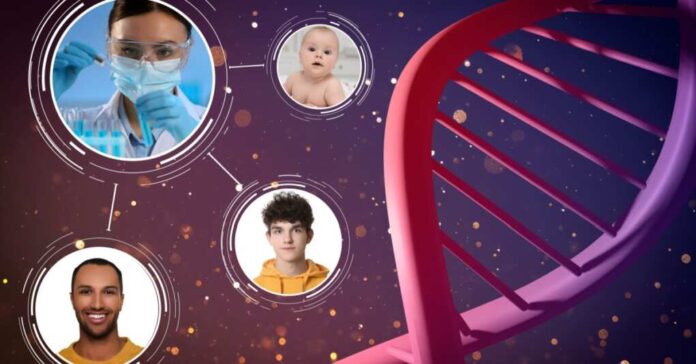
He Jiankui, the Chinese scientist infamous for his involvement in creating the world’s first genetically edited babies, has announced his return to genome editing research. Despite facing backlash and serving a prison sentence for his previous actions, Jiankui claims he is now focusing on using genome editing techniques to tackle genetic diseases like Alzheimer’s.
In a recent interview with a Japanese newspaper, Jiankui expressed his intentions to continue research on human embryo genome editing. He emphasized his commitment to adhering to both domestic and international regulations, stating that he will utilize discarded human embryos for his experiments and has no plans to produce more genome-edited babies.
Jiankui gained notoriety in 2018 when he revealed that he had used the Crispr-Cas9 tool to modify embryos genetically, leading to the birth of twin girls with edited DNA. This revelation sparked widespread condemnation from the scientific community and raised ethical concerns about the implications of genetic manipulation.
Following his controversial experiments, Jiankui was sentenced to three years in prison by a Chinese court for violating medical regulations. He was found guilty of forging documents and conducting medically unjustified procedures without proper consent from the families involved.
Despite his conviction and the criticism surrounding his work, Jiankui remains steadfast in his defense of genome editing. He continues to assert that his actions were motivated by a desire to create genetically healthier offspring, citing his belief that the edited children are free from health issues.
Jiankui has now shifted his focus towards using genome editing to develop treatments for rare genetic diseases such as Duchenne muscular dystrophy and familial Alzheimer’s disease. Since his release from prison in 2022, he claims to have opened three laboratories where he plans to conduct further research.
While Jiankui maintains that the genome-edited children from his experiments are healthy and thriving, many in the scientific community remain skeptical of his claims. Critics argue that the long-term effects of genetic manipulation are still unknown and warn against the potential risks involved.
In his interview with the Mainichi Shimbun, Jiankui expressed optimism about the future acceptance of human embryo gene editing. He believes that society will eventually embrace this technology to combat genetic diseases despite the controversies it may entail.
The prospect of manipulating human genes has sparked excitement and apprehension among experts. While some hail the technology as a potential game-changer in disease prevention and treatment, others warn of ethical and practical challenges.
The advancement of genome editing technology has ignited discussions about its potential implications, particularly concerning the ethical boundaries of modifying embryos. Ruth Garde, curator of the Cut + Paste exhibition on genome editing, warns of the slippery slope into eugenics, where the ease of genome editing opens the door to the notion of “improving” human traits. The need for clear guidelines on when genetic modification should be employed in humans fuels a contentious debate. At the same time, some argue for the use of genome editing to correct life-threatening genetic defects.
Medical professionals caution that the complexity of human biology means that editing genes could have unforeseen consequences. The Times reports that while gene editing holds promise for treating diseases, the long-term effects remain uncertain, as most diseases involve multiple genes.
Despite the potential benefits, many scientists and ethicists balk at the idea of editing human embryos due to the ethical dilemmas it poses. Dr. John Leonard from Intellia Therapeutics emphasizes the importance of considering issues such as consent and the ability to predict the outcomes of genetic modifications.
Ethical debates surrounding gene editing also intersect with practical concerns, particularly regarding funding and accessibility. The Independent highlights the existing disparities in healthcare access, suggesting that gene editing could further exacerbate inequalities.
As Jiankui continues his research into genome editing, questions persist about his work’s ethical implications and potential consequences. While some view his efforts as a promising avenue for medical advancement, others caution against the dangers of playing with the building blocks of life.







